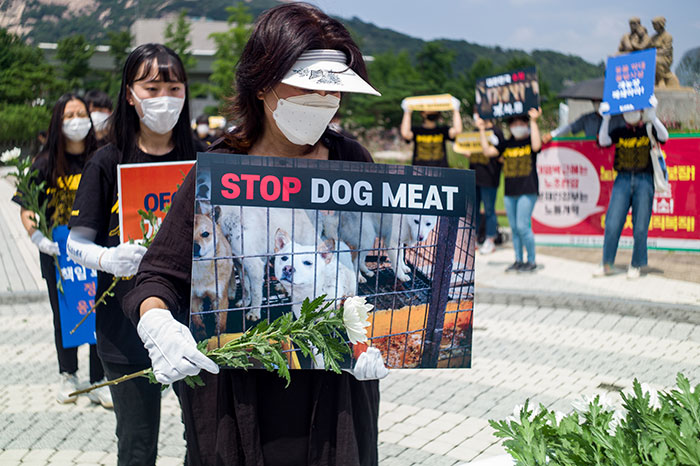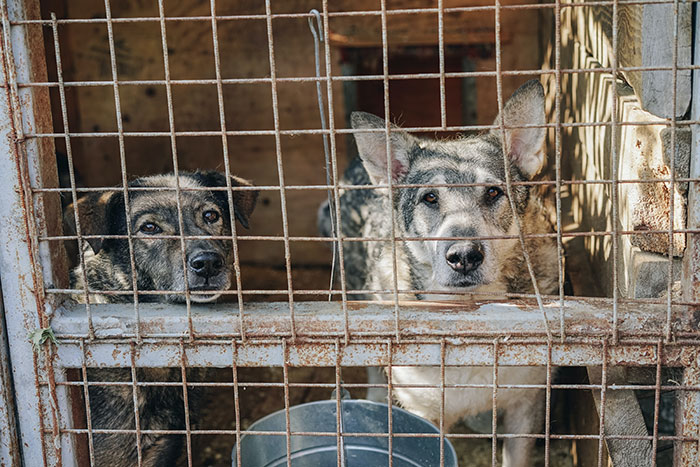Navigating Generational Views and Global Perspectives in South Korea’s Landmark Decision Against Dog Meat Consumption
In a landmark decision, South Korea has officially moved to outlaw the dog meat trade by 2027. This pivotal resolution, reached with unanimous support in a recent parliamentary vote, has ignited a spectrum of reactions, ranging from endorsements by animal rights advocates to concerns over cultural traditions and health standards.
The new law, seen as a historic step by many activists, will effectively prohibit the raising, slaughtering, distributing, and selling of dogs for consumption. Individuals found in violation of this law could face stringent penalties, including jail time and substantial fines.
While the consumption of dog meat itself will not be illegal, the legislation, set to take effect in three years, mandates a transition period for those involved in the dog meat industry. This includes dog meat farmers, butchers, and restaurant owners, who are required to develop plans to phase out their businesses and seek alternative livelihoods. The government has pledged support to these individuals, though the specifics of this assistance are still being formulated.
This decision comes against the backdrop of a changing societal perspective in South Korea. The consumption of dog meat, traditionally seen as a delicacy in certain older demographics, has seen a significant decline in popularity, especially among younger generations. Many in the younger populace view dogs more as pets than as a source of food, reflecting a shift in cultural attitudes.

For instance, South Korea’s current president, Yoon Suk Yeol, and his wife, both known animal lovers, have six dogs, underscoring this changing perception. Recent statistics indicate a drastic reduction in dog meat consumption, with a Gallup poll revealing only a small percentage of the population having consumed dog meat in the past year.
The generational divide on this issue is stark. Older individuals, such as 86-year-old Kim Seon-ho, lament the loss of what they consider a traditional food, arguing for equal treatment of all meat consumption. In contrast, younger voices like 22-year-old student Lee Chae-yeon advocate for the ban, viewing dogs more as family members than as food.
Jung Ah Chae, a leading figure in animal rights in Korea, expressed her joy and surprise at the ban, recognizing it as a significant step towards a more humane treatment of dogs. However, some in the dog meat industry argue that the practice was already on a natural decline, suggesting that the ban forces an abrupt end to their livelihoods.
The global perspective on dog meat consumption varies, with practices differing significantly across countries. In China, for instance, the legal status of consuming dog meat varies, with some cities like Shenzhen having banned it entirely. The notorious Yulin dog meat festival continues annually, despite being a source of international controversy and criticism.
Vietnam, another country known for its dog meat consumption, sees millions of dogs slaughtered annually for this purpose. However, efforts by animal welfare organizations like Four Paws have led to significant progress, including the closure of dog meat restaurants and initiatives to end the trade in certain areas.
The decision by South Korea represents a significant cultural shift and has implications for the global conversation on animal rights and cultural practices. It highlights the evolving attitudes towards animals and the complex interplay between tradition, ethics, and modern societal values.
